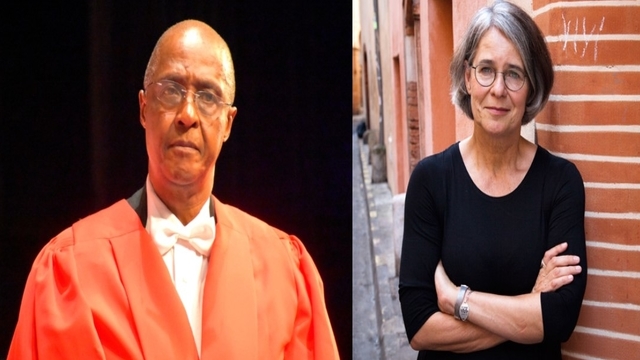
Rhodes University will host an intensive two-day Colloquium under the theme - Rethinking South African Canonical Writing: Centering the isiXhosa Writings of the 19th and Early 20th centuries from 21 to 22 June 2017. This transformative academic engagement will focus on the role of the work of African intellectuals, especially isiXhosa writings during this period.
The Colloquium, which seeks to reflect on and engage with the thoughts, ideas, and knowledge embedded in the writings of isiXhosa writers, is presented by the National Institute for Humanities and Social Sciences (NIHSS) Catalytic Project on Concept Formation, in African Languages Studies. The project is housed in the School of Languages and Literatures.
Motivated by the need to consider indigenous ways of knowing in the teaching, learning and research practices of the University, this discussion follows on the historical awarding of the Presidential Silver in the Order of Ikhamanga Awards in April to Professor Jeff Opland, Research Associate and visiting Professor in African Language Studies Department. Opland was honoured for his excellent contribution in the field of history and an impressive body of works in literature.
Human rights lawyer, academic and Theologian, Professor Nyameko Barney Pityana will set the tone on day one with a lecture titled- Intellectual Traditions and the Soul of Black Folk: the liberating agenda of literature and the arts at Eden Grove on Wednesday, 21 June 2017.
Professor Pityana was conferred with an Honorary Doctorate in Law by the University at this year’s graduation ceremony. He is also the co-founder of the Black Consciousness Movement, alongside Steve Bantubonke Biko.
He will be in discussion with Professor Lungisile Ntsebeza, holder of the AC Jordan Chair in African Studies at the University of Cape Town. Prof Ntsebeza is also the National Research Foundation (NRF) Research Chair in Land Reform and Democracy in South Africa and the principal investigator for the University of Cape Town’s NIHSS Pre-colonial History Catalytic Project.
Convener of the Colloquium, Professor Pamela Maseko said: “it is sad that the academy is silent about African intellectual thought when Africa is teeming in its presence. The right to speak your language, as enshrined in the Bill of Rights, is not enough if one cannot use it to understand, share and process knowledge in the context of one’s past experiences, and ways of knowing. This comes from the view that a language is a repository and the way people think about their environment.”
An Associate Professor of Sociolinguistics at the African Language Studies Department, Prof Maseko said that the aim of bringing African intellectual thought into the academic landscape begins a process of challenging the South African literary canon, which excludes the literary works from African intellectuals such as Gqoba, Solilo, Wauchope, Mgqwetho, Ntsiko, Jordan, Noni Jabavu, Maxeke, and Mqhayi.
“Some of these authors were re-published through the UKZN Press’ Publications of the Opland Collection of Xhosa Literature Series, a collaborative research project between Rhodes University, NIHSS and the Opland Collection of Xhosa Literature,” said Prof Maseko.
The Colloquium will cover three broad themes: Challenging the South African literary canon centering on the 19th century and early 20th century isiXhosa writings; the African intellectuals and their intellectual thought and, African ways of knowing and experience in the South African academic discourse/the disciplines as espoused in the writings of the 19th and 20th centuries.
The session on the last day of the Colloquium, Thursday, 22 June will include plenary and panel discussions. Speakers will include Professor Andre Odendaal, who will deal with African intellectuals and the making of modern South Africa.
Rhodes alumni and historian Dr Nomathamsanqa Tisani will present a paper on Re-visiting and celebrating our literary elders to build a multiverse tomorrow. Author and poet Professor Antjie Krog will also present a on the question: “Are we not part of those, opening the road to freedom?” Rethinking the conception of South African Canonical Writings.
Professor Maseko will speak more about the African Intellectuals, the archiving of knowledge and its desired uses in academia in a Sunday Independent spread.
Click on the link below to read…
Photo: Left, Professor Nyameko Barney Pityana and Right, Professor Antjie Krog
